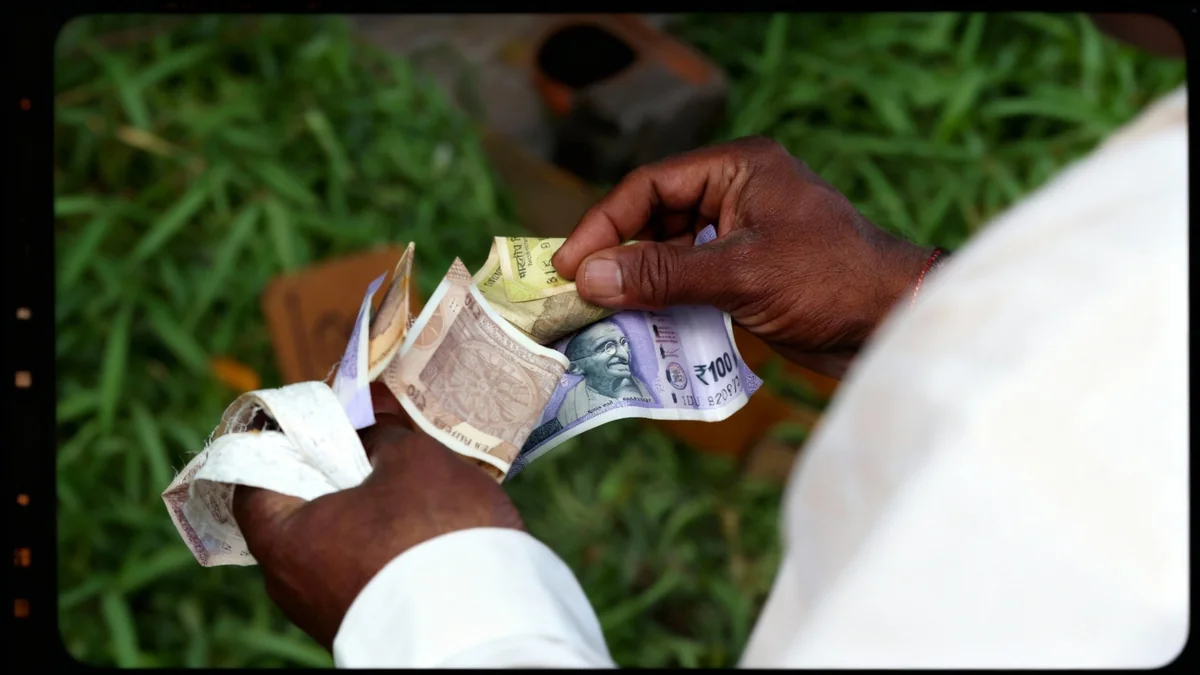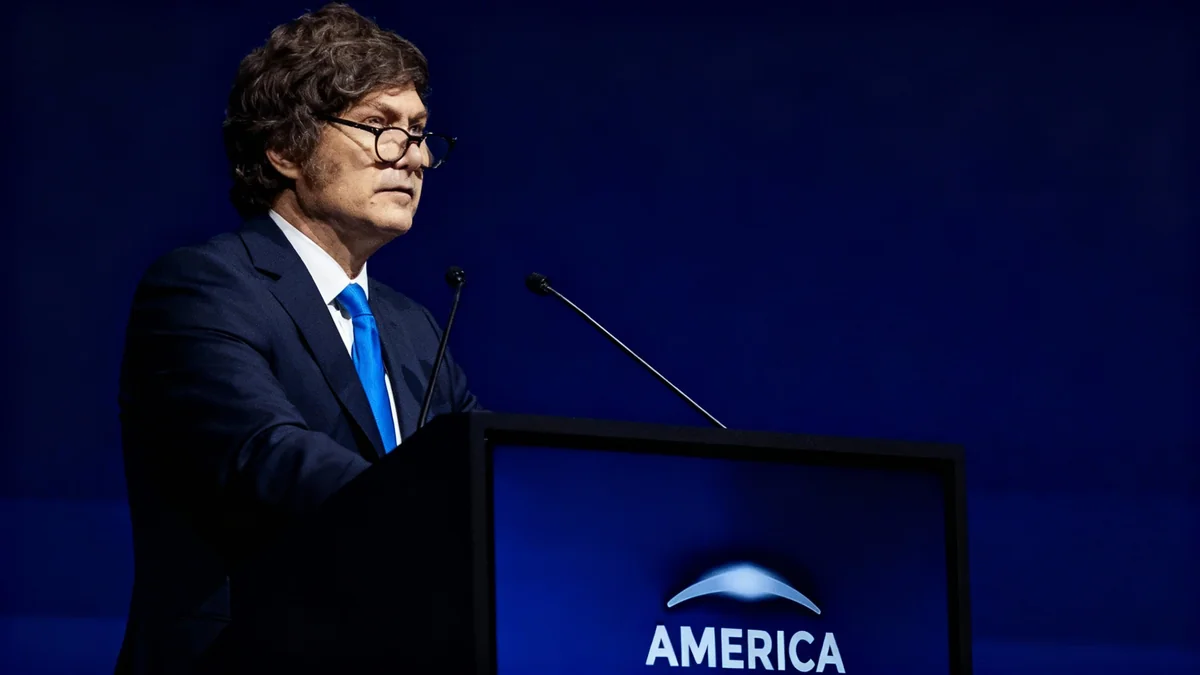The United States Treasury Department has confirmed a new financial support package for Argentina totaling $40 billion, according to Treasury Secretary Scott Bessent. The plan includes a $20 billion currency swap line and a separate $20 billion facility, backed by private investors, to purchase the country's sovereign debt. The announcement comes as the U.S. also made a second purchase of Argentine pesos on the open market.
Key Takeaways
- The U.S. is organizing a $40 billion financial support package for Argentina.
- The package consists of a $20 billion currency swap line and a $20 billion private-sector debt investment facility.
- Treasury Secretary Scott Bessent clarified that U.S. support is tied to Argentina's economic policies, not upcoming election results.
- The U.S. government recently purchased Argentine pesos for the second time in a week to help stabilize the currency.
- The move is part of a broader U.S. strategy to reinforce its economic influence in Latin America and counter China's presence.
Details of the Two-Part Financial Plan
The financial assistance announced by the U.S. is structured in two distinct parts. The first is a $20 billion currency swap line directly from the United States to Argentina. Treasury Secretary Scott Bessent confirmed this arrangement aims to improve Argentina's market liquidity. He specified that the swap line would be backed by International Monetary Fund (IMF) Special Drawing Rights (SDRs) held within the Treasury's Exchange Stabilization Fund.
The second component is a $20 billion debt investment facility. This is not a direct government loan but rather a framework being organized by the U.S. Treasury to encourage private investment in Argentina's sovereign debt. The goal is to create a market-based solution for Argentina's upcoming debt obligations.
"So it is a private-sector solution to Argentina's upcoming debt payments," Bessent stated during a press conference. "Many banks are interested in it, and many sovereign funds have expressed interest in being part of it."
Work on this private-sector facility has been ongoing for several weeks, though a specific timeline for the debt purchases has not been provided. These measures are complemented by direct intervention in the currency market. Bessent confirmed the U.S. purchased Argentine pesos on Wednesday, October 15, following a similar operation on October 9. Details on the size of these purchases were not disclosed.
Understanding a Currency Swap Line
A currency swap line is an agreement between two central banks to exchange their countries' currencies. It allows a central bank to obtain foreign currency from the other central bank at a specified exchange rate, providing liquidity to its domestic commercial banks when foreign currency is scarce. In this case, it helps Argentina access U.S. dollars to stabilize its economy and financial markets.
US Policy Tied to Economic Reforms Not Elections
The announcement of financial support was accompanied by a crucial clarification regarding U.S. policy. The move followed comments from U.S. President Donald Trump on Tuesday, which suggested that American support could be at risk if President Javier Milei's party performs poorly in the upcoming parliamentary elections on October 26.
However, Secretary Bessent directly addressed these concerns, emphasizing that the administration's backing is contingent on policy, not politics.
"It is policy-specific. So as long as Argentina continues enacting good policy, they will have U.S. support," Bessent said. He explained that the support "is not election-specific."
The U.S. defines "good policies" as the continuation of President Milei's libertarian fiscal austerity agenda and free-market reforms. While a victory for Milei's La Libertad Avanza party would provide a stronger legislative mandate for these policies, Bessent's statement signals that U.S. financial backing will remain as long as the current economic direction is maintained, regardless of the election's outcome.
Market Reaction and Argentina's Response
Financial markets in Argentina had a mixed reaction to the news. Following the clarification from Bessent, Argentine stocks, which had been under pressure, recovered. The local stock index ended the day 1.7% higher after being up more than 4% earlier in the session. The country's international dollar bonds also saw a modest increase.
In contrast, the Argentine peso weakened after the announcement. The currency declined by 1.7%, trading at 1,378 per U.S. dollar. This suggests that while equity and bond investors were reassured by the promise of support, currency traders may remain cautious about the country's underlying economic challenges.
Market Snapshot
- Argentine Stocks: Closed up 1.7%
- International Dollar Bonds: Ticked up
- Argentine Peso: Weakened 1.7% to 1,378 per dollar
In Buenos Aires, Argentina's Economy Minister, Luis Caputo, responded positively. He stated he hopes to finalize the terms of the $20 billion currency swap "very soon," ideally before the October 26 elections. Caputo also reinforced the government's commitment to its current economic path.
"Regardless of the outcome of the vote, the policies of the Milei administration would remain the same," he said. Caputo added that the government was exploring other financial options and had received informal investment pledges from U.S. businesses totaling billions of dollars.
Geopolitical Strategy and the 'Economic Monroe Doctrine'
Secretary Bessent provided insight into the strategic motivations behind the significant U.S. support for Argentina. He indicated the decision was not primarily driven by fears of systemic financial risk but rather by a broader geopolitical vision he termed an "Economic Monroe Doctrine."
This approach references the 1823 Monroe Doctrine, a U.S. policy aimed at limiting European influence in the Americas. In its modern economic form, the policy seeks to bolster U.S. influence and counter the growing presence of China in Latin America. China currently maintains its own $18 billion swap line with Argentina.
The Treasury Secretary described President Milei's government as a "beacon" for its resistance to past socialist policies in the region. The Trump administration hopes that the success of Argentina's free-market reforms, aided by U.S. support, could encourage other governments in Latin America to shift their economic policies to the right. Separately, President Milei mentioned that his government is in discussions with the U.S. about a potential agreement that would grant Argentina new trade advantages.





